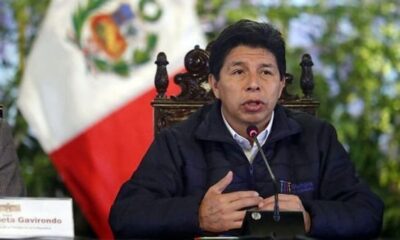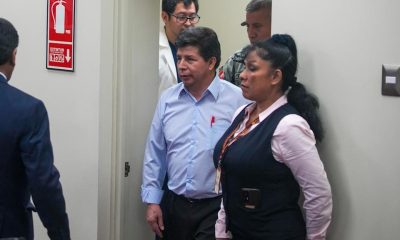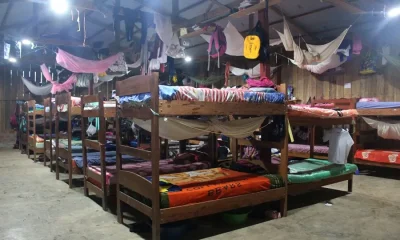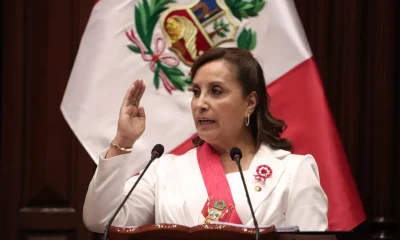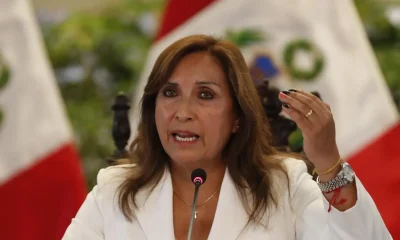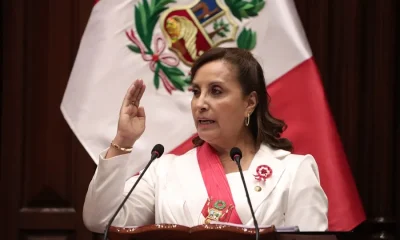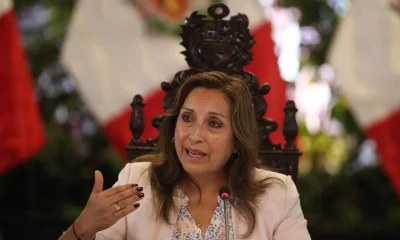International
Drought in Peru Andes proves fatal for alpacas, potato crops
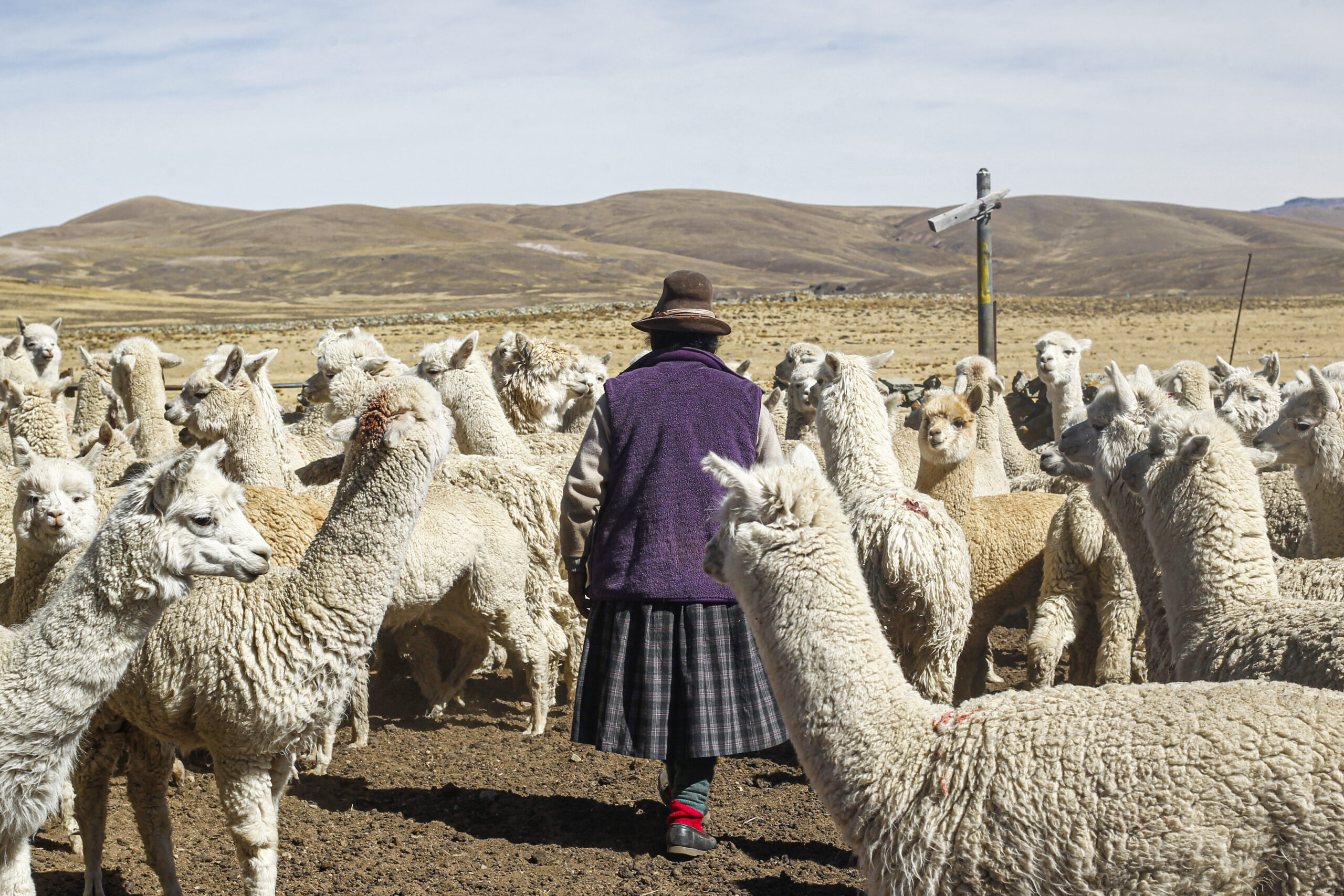
| By AFP | Juan Carlos Cisneros, with Ernesto Tovar in Lima |
A drought in the Peruvian Andes has ravaged alpaca flocks and withered potato crops, forcing the government to declare a state of emergency on Saturday for 60 days in more than 100 districts.
Hardest hit are rural communities in the Arequipa and Puno departments in Peru’s southern region, where the government decreed a state of emergency “due to imminent danger from water shortage.”
The national weather service, Senamhi, described the drought as one of the worst in the past half century, exacerbated by the offshore La Nina weather phenomenon in the central Pacific Ocean.
“November 2022 was one of the driest (months) in the last 58 years in various weather stations in the Andean region,” Senamhi reported.
Andean hamlets for Quechua- and Aymara-speaking indigenous groups have faced critical losses of crops and livestock herds.
“For lack of forage and water, the alpacas are dying. My alpacas have died,” Isabel Bellido, an alpaca farmer, told AFP from her mountain home in Lagunillas near Puno, a regional capital at 4,200 meters (12,550 feet) in elevation some 850 kilometers (530 miles) southeast of Lima.
Carlos Pacheco, a veterinarian and expert in llamas and alpacas, said a worst-case scenario would be for the drought to endure.
“The animals are already underweight, and there is no pasture,” he said.
At high altitude in the Andes, temperatures can drop to minus 20 degrees Celsius (minus four degrees Fahrenheit), and cause mass deaths of sheep and alpacas, vital to the subsistence of dwellers in mountain hamlets.
Divine supplication
In the winter of 2015, an estimated 170,000 alpacas died from extreme cold and drought in Peru.
Local press reports say hundreds of alpaca crias, or babies, and lambs have already died this year.
Shallow lakes have dried up, leaving only scattered puddles, as in the case of the Parihuanas Lagoon near Lagunillas.
In the neighboring Santa Lucia district, the Collpacocha Lagoon has completely disappeared, leaving only a cracked mud lake bed.
Near Lake Titicaca, the highest navigable inland sea in the world at 3,812 meters in elevation, the inhabitants of the Aymara-speaking village of Ichu appeal to a higher authority to end the drought.
They have taken out the venerated Catholic figure of Our Lady of the Cloud in a procession through the fields to plead for the first time in years for holy intervention to bring rain.
“We’ve planted our crops in the customary way but the potatoes aren’t sprouting because of the intense heat. It is worrisome,” said Daniel Ccama, a community leader in Ichu.
“Let the rains come Father Jesus. Don’t punish us father,” the procession participants chanted in their native Aymara.
International
Paraguay summons Brazilian ambassador over Itaipú espionage scandal
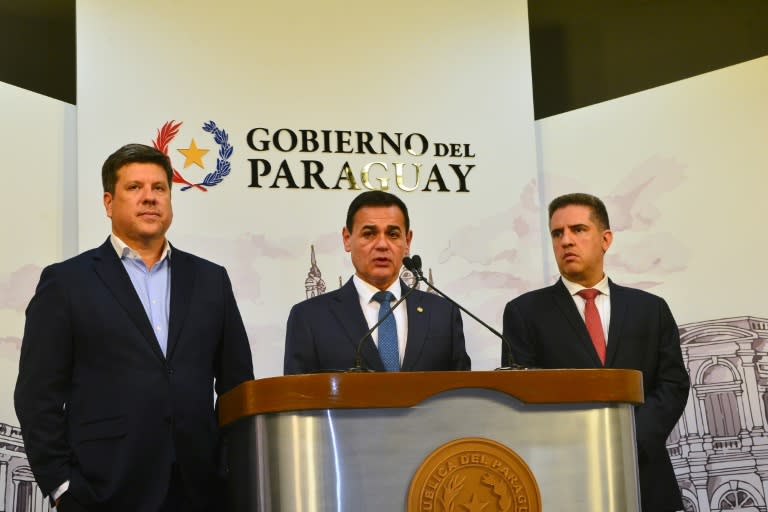
Paraguay summoned the Brazilian ambassador in Asunción on Tuesday to demand “explanations” and called its own representative in Brasília for consultations following Brazil’s acknowledgment of an espionage operation. The Brazilian government, led by President Luiz Inácio Lula da Silva, attributed the operation to the previous administration.
The surveillance effort aimed to uncover Paraguay’s position in now-suspended negotiations with Brazil regarding the pricing of electricity from the binational Itaipú hydroelectric plant, according to reports in the Brazilian press.
The Brazilian government “categorically denied any involvement in the intelligence operation,” stating in a Foreign Ministry communiqué on Monday that the espionage was carried out under former President Jair Bolsonaro’s administration (2019-2023).
“The operation was authorized by the previous government in June 2022 and was annulled by the interim director of the (state intelligence agency) ABIN on March 27, 2023, as soon as the current administration became aware of it,” Brazil’s government asserted.
Paraguay’s Foreign Minister Rubén Ramírez announced that Brazilian Ambassador José Antonio Marcondes de Carvalho was summoned “to provide detailed explanations” regarding the operation. Additionally, Paraguay recalled its diplomatic representative in Brasília “to report on aspects related to the intelligence activity conducted by Brazil regarding Paraguay’s government affairs.”
International
Elon Musk to step down as government advisor, per Trump insiders
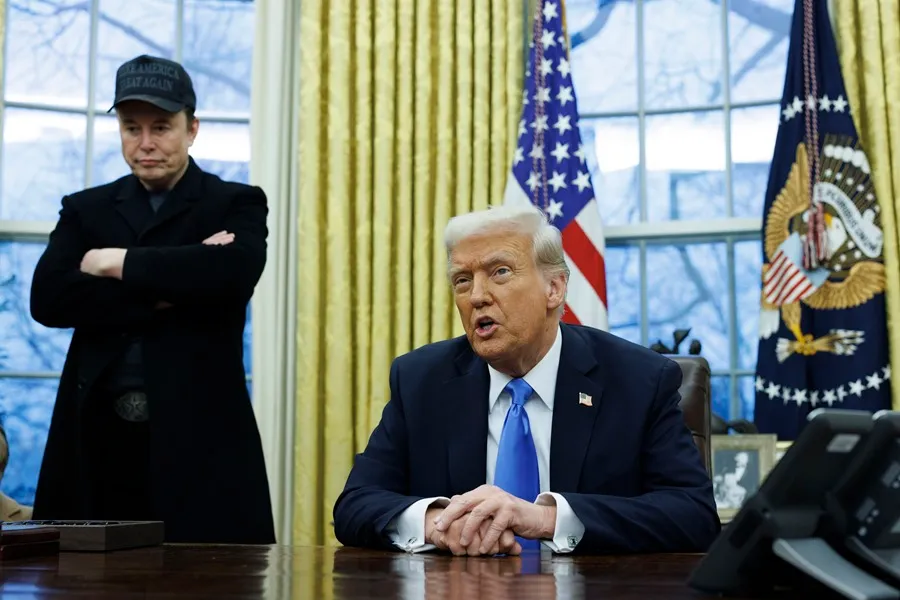
President Donald Trump has informed his inner circle that Elon Musk will be stepping down from his role as a government advisor, according to a report by Politico today.
Citing three individuals close to Trump, Politico states that the president is pleased with Musk’s leadership at the Department of Government Efficiency (DOGE), where he has implemented significant budget cuts. However, both have agreed that it is time for Musk to return to his businesses and support Trump from a different position outside the government.
A senior administration official told Politico that Musk will likely maintain an informal advisory role and continue to be an occasional visitor to the White House. Another source warned that anyone thinking Musk will completely disappear from Trump’s circle is “deluding themselves.”
According to the sources, this transition is expected to coincide with the end of Musk’s tenure as a “special government employee,” a temporary status that exempts him from certain ethics and conflict-of-interest regulations. This 130-day period is set to expire in late May or early June.
International
Milei vows to make Argentina so strong that Falkland Islanders “choose” to join

Argentine President Javier Milei reaffirmed his country’s claim over the Falkland Islands (known as the Islas Malvinas in Argentina) and praised the role of the nation’s armed forces during a ceremony marking the “Veterans and Fallen Soldiers of the Malvinas War Day,” commemorating 43 years since the 1982 conflict with the United Kingdom.
Argentina continues to assert sovereignty over the islands, arguing that Britain unlawfully seized them in 1833.
“If sovereignty over the Malvinas is the issue, we have always made it clear that the most important vote is the one cast with one’s feet. We hope that one day, the Malvinas residents will choose to vote with their feet and join us,” Milei stated.
“That is why we aim to become a global power—so much so that they would prefer to be Argentine, making deterrence or persuasion unnecessary. This is why we have embarked on a path of liberation, working to make Argentina the freest country in the world and once again the nation with the highest GDP per capita on the planet,” he added.
-

 Central America3 days ago
Central America3 days agoU.S. Homeland Security Secretary urges Mexico to strengthen Guatemala border
-

 Central America3 days ago
Central America3 days agoPanama grants Martinelli 72-hour extension to travel to Nicaragua
-

 International2 days ago
International2 days agoParaguay summons Brazilian ambassador over Itaipú espionage scandal
-

 Central America4 days ago
Central America4 days agoPanama police clarifies that Interpol alert for Martinelli is still pending
-

 International3 days ago
International3 days agoTrump urges Putin to reach peace deal
-

 International4 days ago
International4 days agoDeportation flight lands in Venezuela; government denies criminal gang links
-

 Sports2 days ago
Sports2 days agoFilipe Luis debuts as coach in Copa Libertadores with Flamengo
-

 Central America2 days ago
Central America2 days agoGuatemalan police officer killed in mob riots over baby kidnapping
-

 International2 days ago
International2 days agoElon Musk to step down as government advisor, per Trump insiders
-

 Sports2 days ago
Sports2 days agoVenezuela investigates 18 baseball players seeking asylum in Spain
-

 International2 days ago
International2 days agoMilei vows to make Argentina so strong that Falkland Islanders “choose” to join
-

 International2 days ago
International2 days agoICE agent’s arrest of suspect sparks controversy in Boston
-

 International2 days ago
International2 days agoÓscar Arias: Trump’s trade policies are a step backward














